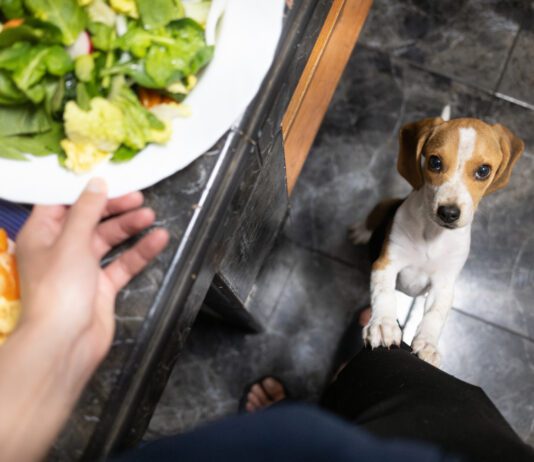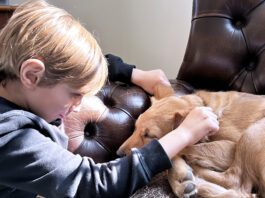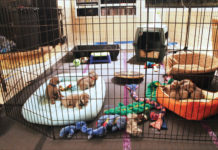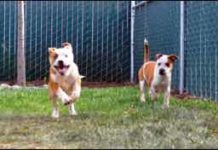The 10 Most Important Things to Teach A Puppy
I don't care what breed or mix of breeds you're talking about, puppies are inarguably, impossibly and adorably cute. You have to be pretty...
Take Control of Puppy Chewing
Why do puppies chew? They chew to explore the world, and to relieve the pain and irritation of teething. But they also chew because it's a natural, normal activity for all canines, young and old. While puppies do eventually grow up and get past the stage where they feel compelled to put their teeth on everything they see, mature dogs also need to chew to exercise their jaws, massage their gums, clean their teeth, and to relieve stress and boredom.
Puppies in Public: Risk Factors
As the proud owner of a new puppy, you are faced with some big decisions in the first few months. Are ALL of those vaccinations necessary? Can my puppy start socializing by mingling at the dog park or on the street? When should I begin training, or hire a dog trainer? What may seem like obvious answers are actually quite complicated and critically important to your puppy's well being.
What is Proper Socialization and How Do You Make Sure Your Puppy Gets It?
In 2008, the American Veterinary Society for Animal Behavior (AVSAB) released a statement affirming that puppy socialization is a critically important tool in the development of a behaviorally normal dog. The organization also confirmed that the risk of a puppy contracting a serious or fatal disease during proper socialization efforts is far less than the risk of a dog later being given up or euthanized due to behavior problems that developed as a result of a lack of socialization. This is an absolutely critical accomplishment for your dog.
5 Things To Do When Your Puppy Acts Out
You thought you were doing a good thing for your mature dog when you adopted a new puppy. She'll love him!" you assured yourself. "It will keep her young and active." Rather than loving him
Ways to Manage an Adolescent Dog
Is your once cute, cuddly, and well-behaved pup suddenly acting out? Is your dog ignoring you, taking off if he sees something interesting, and chewing on everything in sight? Did his once perfect sit
The First Week with a New Puppy
It's one of the best feelings in the whole world -- those first few hours with your new puppy when everything is perfect and anything is possible. It doesn't take long, however, for that bubble to burst. It could be the very first day, when you step in that pile of puppy poo on your Persian carpet, or find deep puppy tooth gouges in your treasured pair of Jimmy Choo shoes.
Properly Socializing Your Puppy
While curiosity and the ability to learn don't have expiration dates, young puppies have an important behavioral sweet spot" between the ages of 8 and 16 weeks. During this critical period
Optimizing Your Puppy’s Brain
Cute is not the first word you reach for when describing newborn puppies. Born unable to hear or see, with smushed-in faces and twitchy little bodies, they look for all the world like diminutive aliens. Detached and distant visitors from another planet, they are in their own orbit, seeking only warmth, milk, and the rough caress of their mother’s tongue. Nothing, of course, could be further from the truth.
Eliminating Your Puppy’s Fear-Related Behaviors
The intent of puppy socialization is to convince the part of the puppy’s brain that reacts emotionally to his world (the amygdala) that, in general, the best/most appropriate emotional responses are calm, relaxed, and happy. These days, the importance of puppy socialization is well-known and widely accepted. Interesting, then, that some behavior professionals (myself included) report seeing an increasing number of canine clients with fear-related behaviors.
Puppy Vaccinations and Socialization
A veterinarian's first priority is the physical health of her clients. As a result, sadly, some veterinarians still issue the out-of-date edict to their puppy owners to not take their baby dog anywhere until he is fully vaccinated age 4 to 6 months. This, of course, totally overlooks the very real concern for a pup's mental health, and the vital need for proper socialization to occur well before the pup is fully vaccinated. As mentioned in the accompanying article, the primary socialization period is early and short when the pup is 3 to 14 weeks of age.
How to Train Your Puppy Not to Bite
Contained in every puppy’s mouth is a set of amazingly sharp little daggers known as “teeth.” Puppies explore the world with those mouths. Since you are part of your pup’s world, it is inevitable that those sharp little teeth will at some point come in contact with your tender skin during a behavior known as “puppy biting.” It hurts. So what should you do when your puppy bites you, or other family members (including children)?



















